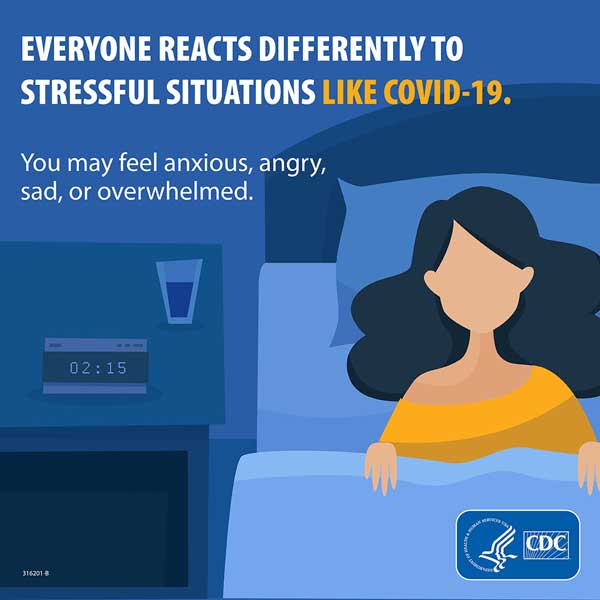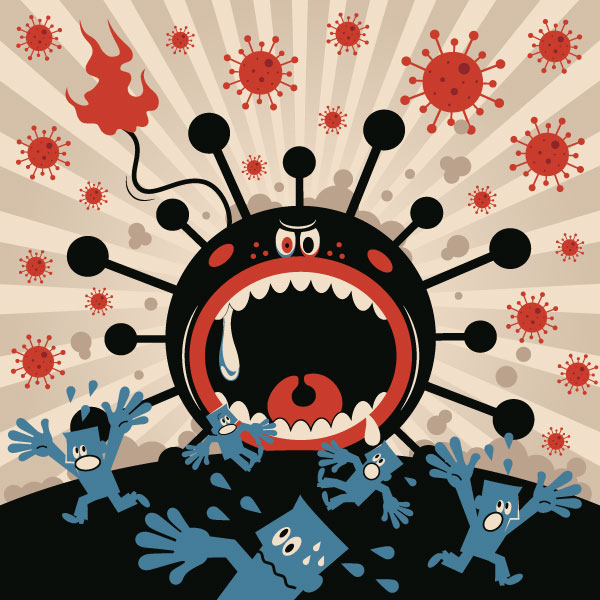 The Wellness Coalition has been working to dispel myths and increase COVID-19 vaccination rates in Montgomery, Lowndes, and Macon counties. Yet, a vaccination does not treat chronic stress, which has become almost as widespread as the pandemic itself.
The Wellness Coalition has been working to dispel myths and increase COVID-19 vaccination rates in Montgomery, Lowndes, and Macon counties. Yet, a vaccination does not treat chronic stress, which has become almost as widespread as the pandemic itself.
“Chronic stress is linked to conditions such as hypertension, heart disease, obesity, type 2 diabetes, and arthritis,” said Na’Sha DeRamus, REACH COVID/Flu Vaccination Coordinator for The Wellness Coalition. “We want to encourage everyone who is living with pandemic-induced stress to learn ways to cope and access free resources that are available to them.”
April is National Stress Awareness Month, so it’s a timely opportunity for healthcare workers, peers, and loved ones to check in with themselves and others about the effects of chronic stress and ways to cope.
The Prevalence of Chronic Stress Has Increased
Surveys show a drastic increase in the number of U.S. adults who report symptoms of stress, anxiety, depression, and insomnia during the pandemic, compared with surveys that were conducted before the pandemic. The World Health Organization notes that, “One major explanation for the increase is the unprecedented stress caused by the social isolation resulting from the pandemic. Linked to this were constraints on people’s ability to work, seek support from loved ones ,and engage in their communities.”
Additional contributors to COVID-19 related stress include:
- Fear of infection, which has led many to avoid people and public gatherings to this day
- Fear of suffering and death for oneself and loved ones
- Grief after bereavement
- Financial worries
- Exhaustion among healthcare workers
- Constant worry since COVID-19 first appeared
 Coping with Stress
Coping with Stress
Many of us are facing challenges that can be stressful and overwhelming, even without a worldwide pandemic still lingering. Learning to cope with stress in a healthy way will help you, your patients, the people you care about, and those around you to become more resilient. Stress can cause the following:
- Feelings of fear, anger, sadness, worry, numbness, or frustration.
- Changes in appetite, energy, desires, and interests
- Trouble concentrating and making decisions
- Nightmares or problems not getting enough sleep
- Physical reactions, such as headaches, body pains, stomach problems, or skin rashes
- Worsening of chronic health problems and mental health conditions
- Increased use of alcohol, illegal drugs (like heroin, cocaine, or methamphetamine), and misuse of prescription drugs (like opioids)
Healthy Ways to Cope with Stress
Here are ways to manage stress, anxiety, grief, or worry:
- Take breaks from news stories, including those on social media. It’s good to be informed, but constant information about negative events can be upsetting.
- Consider limiting news to just a couple times a day and disconnecting from phone, TV, and computer screens for a while.
- Take care of your body: Staying physically healthy can improve your emotional well-being. Here are some ways to improve your health:
- Eat healthy. Have fruits and vegetables, lean protein, whole grains, and low-fat or no-fat dairy. Limit foods with unhealthy fats, salt, and added sugars.
- Get enough sleep. Go to bed and wake up at the same time each day to help you sleep better. Adults need 7 or more hours per night.
- Move more and sit less. Every little bit of physical activity helps. Start small and build up to 2 ½ hours a week. You can break it into smaller amounts such as 20 to 30 minutes a day.
- Limit alcohol intake. Choose not to drink, or drink in moderation on days you drink alcohol. Moderation means having 2 drinks or less a day for men or 1 drink or less for women.
- Avoid using illegal drugs or prescription drugs in ways other than prescribed. Don’t take someone else’s prescription. Substance use treatment is available, and recovery starts with asking for help.
- Avoid smoking, vaping, and the use of other tobacco products. People can and do quit smoking for good.
- Continue with regular health appointments, tests, screenings, and vaccinations.
- Make time to unwind.
- Take deep breaths, stretch, or meditate.
- Try to do some other activities you enjoy.
- Connect with others.
- Talk with people you trust about your concerns and how you are feeling.
- Connect with your community-based or faith-based organizations.
Helping Others Cope
Taking care of yourself can better equip you to take care of others. During times of stress, it is especially important to stay connected with your friends and family. Helping others cope with stress through visits, phone calls, or video chats can help you and your loved ones feel less stressed.
